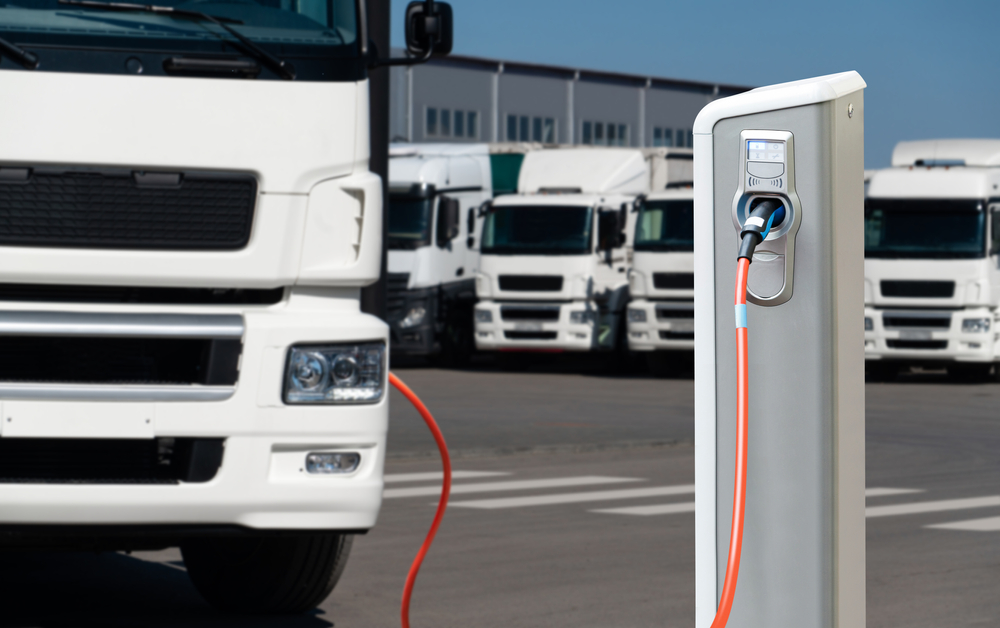Commercial, Distributed Energy Resources, GHG Emissions - February 20, 2025
DHL Group Tests Electric Trucks
DHL Group entered a partnership to jointly develop an electric truck with a fuel-powered generator, making it possible to shift to battery-electric road transport without having to wait for a complete charging network.
The company collaborated with heavy vehicle manufacturer Scania on the Extended Range Electric Vehicle (EREV), which enables DHL to drive 80% to 90% on renewable electricity.
The new e-truck will be deployed by the post and parcel Germany division in February for parcel transport between Berlin and Hamburg to test its performance in day-to-day operations, before additional vehicles are added to DHL's fleet. The fuel-powered generator replaces one of the battery packs in a fully electric truck not needed for the majority of the transport routes, reducing the range coming from the batteries but providing backup energy.
Subject to the findings from the test in Berlin, the vehicle has a possible range of 650 to 800 kilometers and can be refueled at any conventional petrol station. This compares with the 550 kilometers of Scania's most modern and industry-leading 100% electric trucks with an equivalent maximum weight.
"It is going to take some time before renewable electricity, the grid and charging infrastructure are available and robust enough to rely fully on battery-electric trucks, especially for a large-scale system like the German parcel network of DHL,” said DHL Group CEO Tobias Meyer in a statement. “Instead of waiting for this day to come, DHL and Scania are collaborating on a pragmatic solution for making logistics more sustainable and reduce CO2 emissions by more than 80%. This vehicle is a sensible, practical solution that can make an immediate contribution to reducing greenhouse gas emissions in freight transport short-term. Such reductions should be proportionally reflected in the road toll pricing and EU fleet emission scheme. We see this collaboration as a successful innovation project of two companies committed to battle climate change."
The EREV is a 10.5-meter long truck with a maximum weight of 40 metric tons, powered by a 230-kW electric engine (295-kW peak). Energy is delivered by a 416-kWh battery and a 120-kW gasoline-powered generator. With the aid of the onboard generator, initially powered by petrol and later by diesel fuel/HVO, the truck's range extends up to 800 kilometers. EREVs can be equipped with a software limiting the usage of the fuel-powered generator, thereby allowing CO2 emissions to be reduced and limited to a specified level.
Share this valuable information with your colleagues using the buttons below:
« Back to NewsStay Up-To-Date












